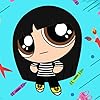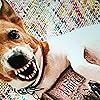Beachesnbooks
asked
Scott Hawkins:
I absolutely loved your book--it was so unique and creative. It's really refreshing to read something that different. I had a question about how you determined the disciplines that each of the children studied at the Library. Why was there no discipline for literature, or for history? What made you choose the areas of study that you did--was there anything in particular that influenced your choices?
Scott Hawkins
This answer contains spoilers…
(view spoiler)[Hi Jaleenajo,
Thanks! The very best part about this whole writer thing is when I hear from people who enjoyed the book. I absolutely love that.
The answer to your question is kind of long and very, very, spoilery. Reader be warned.
As far as the first part of your question: the catalogs weren't necessarily intended to be an encyclopedia of all knowledge, they were just stuff Father had taken notes on. In practice, yeah, you could probably find some stuff on just about anything in there, including history, or maybe a way to look directly at the actual historical events taking place. But Father struck me as a relentlessly practical guy--he'd have hobbies, but most of his energy would have gone into either subjugating his enemies, or figuring out how to keep them from subjugating him.
Another part of the answer is that each "catalog" wasn't just a single field of study. So, like, Peter handled mathematics, but his catalog also included cooking. (Fun fact: the actual reason for this is that when I used to study math I often did my best thinking while chopping onions.) Math probably took up most of his time, though, so violet catalog was more or less synonymous with math.
That would be true of the others as well. I imagine that in the course of learning all those languages, Carolyn probably picked up the equivalent of a zillion Ph.Ds in comparative literature.
As far as why those specific catalogs were chosen - it was world-building, basically. In that first chapter I was trying to hint at this vast framework of knowledge and history, but do so in a way that would make the reader's brain fill in most of the gaps. So first you see Michael, who can't talk and hangs out with cougars, then you've got Margaret coming back from the dead, then we've got this lady with ghost children talking in riddles about possible futures... The idea was that you, the reader, would see a couple of corners of this vast world. Your brain would take a couple of wild stabs at where it was all headed, and you'd (again, hopefully) be intrigued enough to continue reading.
For what it's worth, this is an extrapolation of a technique Stephen King talked about in Danse Macabre. He imagines a hypothetical scene in a 1950s movie where you know there's a giant, irradiated bug out there somewhere. And you, the hero, are in some little cabin. It's midnight, and you hear scratching on the door. The big bug is out there.
King's point, and I think it's a good one, is that the moment between when you hear the scratching and the moment when you open the door is the scariest part of the film. During that time, the reader/viewer's imagination is doing the work for the writer. The reader is going to imagine the thing that's scariest for them, personally, and it's going to be different for everybody. Once you actually see the bug, though, some of that fear evaporates. If you open the door and see a fifty foot bug, your reaction is likely to be something along the lines of "well, that's pretty bad, but it could have been a hundred foot bug." And somebody else is going to thing "well, big crickets are scary, but not as scary as big spiders." Or whatever.
So in kind of the same way, in the early stages of Mount Char I'm trying to provide just enough detail to hint at Funky Goings-On and engage the reader's imagination. It's an attempt at mental judo.
Once we move a little deeper into the story, the answer to your question has more to do with "needs of the moment." So, like, "okay, we need a bad guy." How about we take somebody with the combat skills of Chuck Norris and make him a psychopath? David. "I think it would be cool if we had some lion characters. People like lions." Okay, how about one of the librarians can talk to animals? And so on.
Hope that helps.
Scott
* Oh, god--something just occurred to me while I was typing this up. Speaking of Father's hobbies, I think it would be hilarious if Father was, like, really active in the online barbecue community. There's this one real world web site called "amazingribs.com" (THAT IS IN NO WAY AFFILIATED WITH THE BOOK) that's sort of the go-to site for people learning how to do barbecue. I think it would be really funny if the whole site was secretly run by Ablakha on nights and weekends. (hide spoiler)]
Thanks! The very best part about this whole writer thing is when I hear from people who enjoyed the book. I absolutely love that.
The answer to your question is kind of long and very, very, spoilery. Reader be warned.
As far as the first part of your question: the catalogs weren't necessarily intended to be an encyclopedia of all knowledge, they were just stuff Father had taken notes on. In practice, yeah, you could probably find some stuff on just about anything in there, including history, or maybe a way to look directly at the actual historical events taking place. But Father struck me as a relentlessly practical guy--he'd have hobbies, but most of his energy would have gone into either subjugating his enemies, or figuring out how to keep them from subjugating him.
Another part of the answer is that each "catalog" wasn't just a single field of study. So, like, Peter handled mathematics, but his catalog also included cooking. (Fun fact: the actual reason for this is that when I used to study math I often did my best thinking while chopping onions.) Math probably took up most of his time, though, so violet catalog was more or less synonymous with math.
That would be true of the others as well. I imagine that in the course of learning all those languages, Carolyn probably picked up the equivalent of a zillion Ph.Ds in comparative literature.
As far as why those specific catalogs were chosen - it was world-building, basically. In that first chapter I was trying to hint at this vast framework of knowledge and history, but do so in a way that would make the reader's brain fill in most of the gaps. So first you see Michael, who can't talk and hangs out with cougars, then you've got Margaret coming back from the dead, then we've got this lady with ghost children talking in riddles about possible futures... The idea was that you, the reader, would see a couple of corners of this vast world. Your brain would take a couple of wild stabs at where it was all headed, and you'd (again, hopefully) be intrigued enough to continue reading.
For what it's worth, this is an extrapolation of a technique Stephen King talked about in Danse Macabre. He imagines a hypothetical scene in a 1950s movie where you know there's a giant, irradiated bug out there somewhere. And you, the hero, are in some little cabin. It's midnight, and you hear scratching on the door. The big bug is out there.
King's point, and I think it's a good one, is that the moment between when you hear the scratching and the moment when you open the door is the scariest part of the film. During that time, the reader/viewer's imagination is doing the work for the writer. The reader is going to imagine the thing that's scariest for them, personally, and it's going to be different for everybody. Once you actually see the bug, though, some of that fear evaporates. If you open the door and see a fifty foot bug, your reaction is likely to be something along the lines of "well, that's pretty bad, but it could have been a hundred foot bug." And somebody else is going to thing "well, big crickets are scary, but not as scary as big spiders." Or whatever.
So in kind of the same way, in the early stages of Mount Char I'm trying to provide just enough detail to hint at Funky Goings-On and engage the reader's imagination. It's an attempt at mental judo.
Once we move a little deeper into the story, the answer to your question has more to do with "needs of the moment." So, like, "okay, we need a bad guy." How about we take somebody with the combat skills of Chuck Norris and make him a psychopath? David. "I think it would be cool if we had some lion characters. People like lions." Okay, how about one of the librarians can talk to animals? And so on.
Hope that helps.
Scott
* Oh, god--something just occurred to me while I was typing this up. Speaking of Father's hobbies, I think it would be hilarious if Father was, like, really active in the online barbecue community. There's this one real world web site called "amazingribs.com" (THAT IS IN NO WAY AFFILIATED WITH THE BOOK) that's sort of the go-to site for people learning how to do barbecue. I think it would be really funny if the whole site was secretly run by Ablakha on nights and weekends. (hide spoiler)]
More Answered Questions
Kristina Giovanni
asked
Scott Hawkins:
Why would you write a sequel to your beautiful novel? It is perfect the way it is. There are too many series in the world that end up petering out because the authors writing them do not know how to write an ending, or they're unwilling to walk away from the characters they've created. Write more stories like it, but with new characters?
Jenifer
asked
Scott Hawkins:
Was the freebie story that was supposed to take place about a year after the end of Library at Mount Char ever released? I went to your site to look for it and I didn't see it. Also, any chance for a sequel or something else set in the same universe? I think that following Erwin's story line, or what happens to Father when he leaves to the next world would be a great place to start from.
PNJ
asked
Scott Hawkins:
I would love to read and review your books for you! I was wondering if that would be possible? I have a small bookstore, write blogs and book reviews, as well as being an Emergency and Trauma RN. Please let me know and I can give you my email and websites :-) Thanks for taking the time to read this! ~ J
About Goodreads Q&A
Ask and answer questions about books!
You can pose questions to the Goodreads community with Reader Q&A, or ask your favorite author a question with Ask the Author.
See Featured Authors Answering Questions
Learn more





